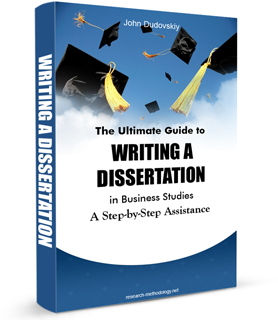Phenomenology
Phenomenology in business research focuses on experiences, events and occurrences with disregard or minimum regard for the external and physical reality. Phenomenology, also known as non-positivism, is a variation of interpretivism, along with other variations such as hermeneutics, symbolic interactionism and others. In simple terms, phenomenology can be explained as the science of mindful experience. It focuses on meanings of phenomena.
This branch of philosophy “describes the philosophical approach that what is directly perceived and felt is considered more reliable than explanations or interpretations in communication”.[1]
In phenomenology ideas are generated from rich amount of data by the means of induction and human interests, as well as stakeholder perspective may have their reflection on the study. Moreover, phenomenology in business studies is a valuable philosophy for exploring human experiences in management studies.
A study analysing the impact of leadership style on employee motivation through conducting in-depth interviews with employees is a suitable example for research with a phenomenology philosophy. Furthermore, a study into work-life balance and its impact on employee performance is another example for phenomenology research in business because such a study needs to describe the experience of sample group members.
Phenomenological studies can be divided into three categories:
- Transcendental phenomenology. The scientific study of appearance of things as they are seen and appear on one’s consciousness.
- Hermeneutic phenomenology. Focus on making meaning of experiences as they are lived.
- Existential phenomenology. Attempting to understand experiences of an individual from the consciousness of those having the experience.
Advantages and Disadvantages of Phenomenology
Advantages associated with phenomenology include better understanding of meanings attached by people and its contribution to the development of new theories. Its disadvantages include difficulties with analysis and interpretation, usually lower levels of validity and reliability compared to positivism, and more time and other resources required for data collection.
The main advantages and disadvantages associated with positivism and phenomenology are summarized on the following table by Armstrong (2010) as taken from Easterby-Smith et al (1991)[2].
| Advantages | Disadvantages | |
| Positivism | Wide coverage of the range of situations | Methods tend to be flexible and artificial |
| Can be fast and economical | Not very effective in understanding processes or the significance people attach to actions | |
| May be relevant to policy decisions when statistics are exaggerated in large samples | Not very helpful in generating theories | |
| Because it focuses on what is or what has been recently, it makes it hard for policy makers to infer what actions should take place in the future | ||
| Phenomenology | Can look at change processes over time | Data gathering can take up a great deal of time and resources |
| Help to understand people’s meanings | The analysis and interpretation of data may be difficult | |
| Help to adjust to new issues and ideas as they emerge | May be harder than positivist approach to control pace, progress and end points | |
| Contribute to the development of new theories | Policy-makers may give low credibility to a phenomenological study | |
| Gather data which is seen as natural rather than artificial |
Advantages and disadvantages of positivism and phenomenology[3]
My e-book, The Ultimate Guide to Writing a Dissertation in Business Studies: a step by step assistance contains discussions of theory and application of research philosophy. The e-book also explains all stages of the research process starting from the selection of the research area to writing personal reflection. Important elements of dissertations such as research philosophy, research approach, research design, methods of data collection and data analysis are explained in this e-book in simple words.
John Dudovskiy
[1] Remeyni, D., Williams, B., Money, A. & Swartz, E. (1998) “Doing Research in Business and Management: An Introduction to Process and Method” Sage Publications, p.97
[2] Easterby-Smith, M, Thorpe, R. & Jackson, P. (2008) “Management Research” 3rd ed, SAGE Publications Ltd., London
[3] Source: Armstrong (2010), as taken from Easterby-Smith et al (1991)

